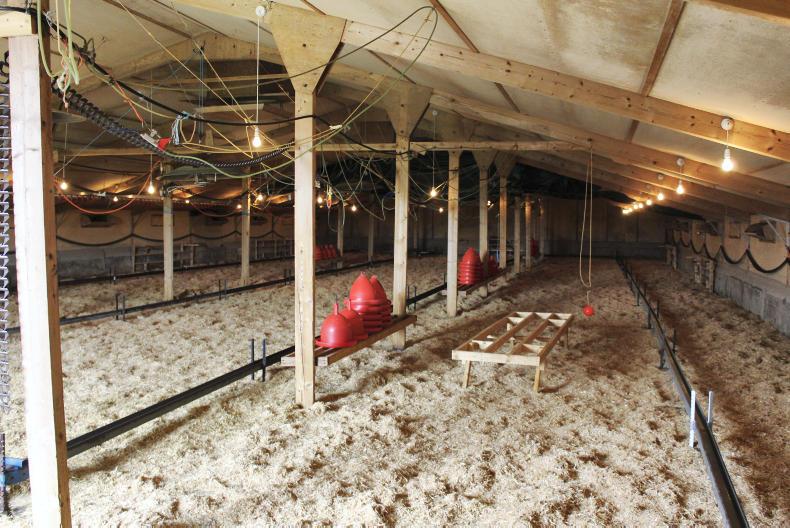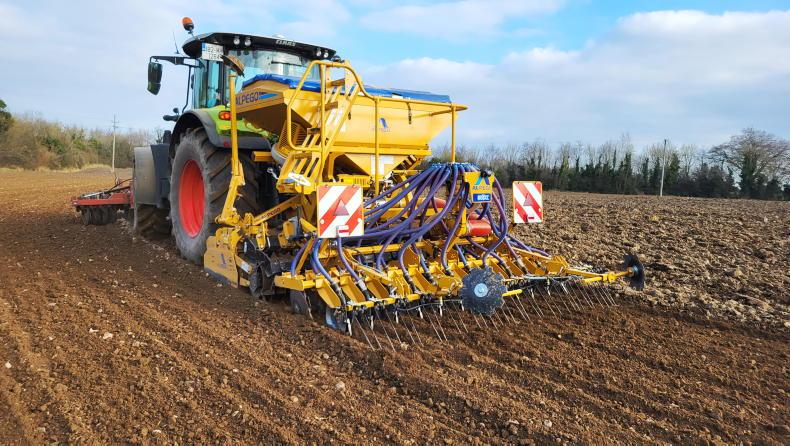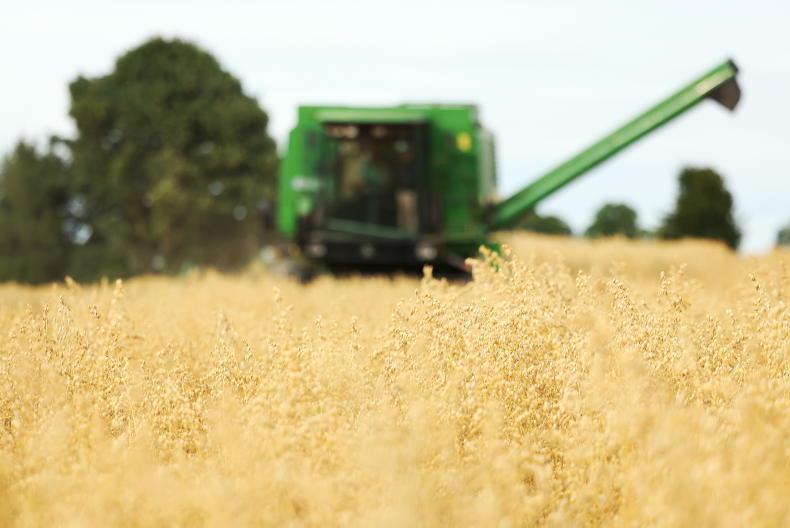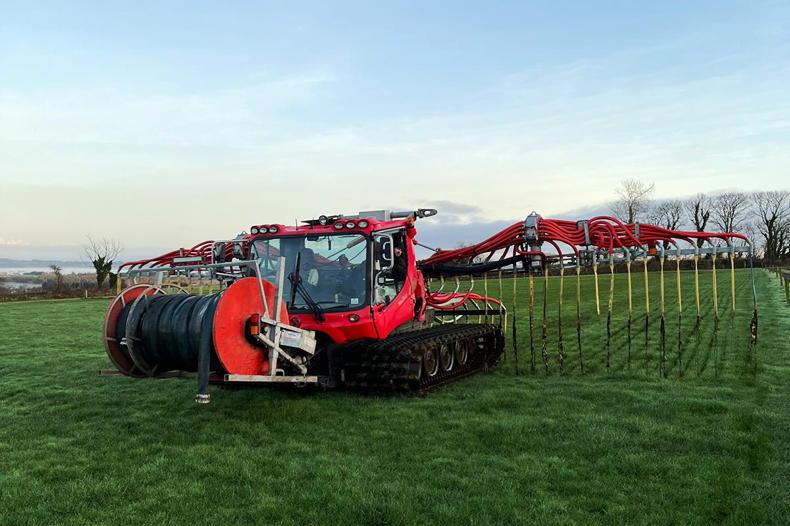Over the past few weeks normal summer weather resumed in NI, and last year’s drought conditions faded into the annals of history.
All those springtime predictions of another heatwave magically vanished and were replaced with our usual blend of sunshine and unpredictable spells of rain. And the predominant emotion (at least on this farm) to accompany the changeable weather is frustration as carefully laid plans are ripped up and thrown out the window.
Balmoral Show now seems a long time ago, when pleasant climatic conditions saw early silage harvested or baled in great order. Since then silage making has swung from hoping to make high-quality fodder, to trying to save much lower value material.
And other routine jobs turned into smash and grab operations too. Windows of opportunity for spraying are short and narrow, with cereals racing through the growth stages and doing their best to make a mockery of carefully prepared fungicide programmes.
Sheep shearing is another task that doesn’t fare well in broken weather, especially where sheep are away from home and can’t be housed.
I thought I was being clever by shearing 110 earlier lambing ewes on 20 May, before they became too fat. I casually mentioned to the shearing men that I would complete the rest in a fortnight or so, but it was almost a month before the rest were clipped.
Mown
Of all the associated stresses and anxieties with broken weather, perhaps my greatest annoyance is being caught out with grass mown.
I have no idea if other farmers get as uptight as me, but when unexpected rain ruins my plans to bale dry grass, my world simply falls apart.
I bale a total of 30 acres, and 6 acres were baled on 23 May in good condition.
Next on the list was a 12ac field at home that the ewe lambs had been wintered on. It’s what I call “sheep grass”, which is a thick sward of fine grass that goes off its feet as soon as it gets to about 8in tall.
Driving past in early June, it had the look of a field that was ready for the mower. Therefore, I checked the weather forecast on my phone every couple of hours, and decided to mow on Monday 3, knowing it would get wet the next day, before a mixture of sunshine and a neighbour’s tedder would turn it into perfect silage by the end of the week. I was wrong.
Is it just me who lies awake in bed at 3am, listening to the rain on the bedroom window, with the most graphic mental picture of wet swards of grass? And trying to respond in a civilised manner when your wife says: “It’s only a field of grass for goodness sake”.
I do try to put it in perspective, by reasoning that mine is a mixed farm, and an area of silage is not really a game changer in the broader scheme of things. But perspective goes out the window when negative thoughts take over, and the middle of the night can exaggerate any small problem.
It rained off and on for almost two days, before Thursday saw the sun make a gradual return. As the wind got up during the afternoon, I was astonished to discover ground conditions weren’t absolute gutters as imagined, and in fact the top of the sward had dried completely.
The field was tedded that evening, rowed up at lunchtime on Friday, and immediately baled and wrapped. It was carted home and stacked in the silo, and by bedtime on Friday evening I felt like I’d just won the lottery.
Tolerance
I suspect a survey of farmers would reveal that bad weather causes huge amounts of stress and anxiety, although everyone has differing tolerance scores.
And not everyone has the same reasons for getting crops saved either. A week after getting my grass baled, a farming friend found himself in an identical situation. He had mowed on a Monday and was tearing his hair out at the prospect of not getting it baled and stacked by Thursday evening.
I tried to reassure him that energy levels and fermentation mightn’t suffer too much for an extra day or two, but he interrupted me with the real cause of his concern.
He said, “I couldn’t give a damn about the grass – Fleetwood Mac are playing in Dublin and I’ve got tickets!”
Read more
Farmer Writes: money is to be made in sheep, not in beef
Farmer Writes: livestock puts silage analysis to the test
Over the past few weeks normal summer weather resumed in NI, and last year’s drought conditions faded into the annals of history.
All those springtime predictions of another heatwave magically vanished and were replaced with our usual blend of sunshine and unpredictable spells of rain. And the predominant emotion (at least on this farm) to accompany the changeable weather is frustration as carefully laid plans are ripped up and thrown out the window.
Balmoral Show now seems a long time ago, when pleasant climatic conditions saw early silage harvested or baled in great order. Since then silage making has swung from hoping to make high-quality fodder, to trying to save much lower value material.
And other routine jobs turned into smash and grab operations too. Windows of opportunity for spraying are short and narrow, with cereals racing through the growth stages and doing their best to make a mockery of carefully prepared fungicide programmes.
Sheep shearing is another task that doesn’t fare well in broken weather, especially where sheep are away from home and can’t be housed.
I thought I was being clever by shearing 110 earlier lambing ewes on 20 May, before they became too fat. I casually mentioned to the shearing men that I would complete the rest in a fortnight or so, but it was almost a month before the rest were clipped.
Mown
Of all the associated stresses and anxieties with broken weather, perhaps my greatest annoyance is being caught out with grass mown.
I have no idea if other farmers get as uptight as me, but when unexpected rain ruins my plans to bale dry grass, my world simply falls apart.
I bale a total of 30 acres, and 6 acres were baled on 23 May in good condition.
Next on the list was a 12ac field at home that the ewe lambs had been wintered on. It’s what I call “sheep grass”, which is a thick sward of fine grass that goes off its feet as soon as it gets to about 8in tall.
Driving past in early June, it had the look of a field that was ready for the mower. Therefore, I checked the weather forecast on my phone every couple of hours, and decided to mow on Monday 3, knowing it would get wet the next day, before a mixture of sunshine and a neighbour’s tedder would turn it into perfect silage by the end of the week. I was wrong.
Is it just me who lies awake in bed at 3am, listening to the rain on the bedroom window, with the most graphic mental picture of wet swards of grass? And trying to respond in a civilised manner when your wife says: “It’s only a field of grass for goodness sake”.
I do try to put it in perspective, by reasoning that mine is a mixed farm, and an area of silage is not really a game changer in the broader scheme of things. But perspective goes out the window when negative thoughts take over, and the middle of the night can exaggerate any small problem.
It rained off and on for almost two days, before Thursday saw the sun make a gradual return. As the wind got up during the afternoon, I was astonished to discover ground conditions weren’t absolute gutters as imagined, and in fact the top of the sward had dried completely.
The field was tedded that evening, rowed up at lunchtime on Friday, and immediately baled and wrapped. It was carted home and stacked in the silo, and by bedtime on Friday evening I felt like I’d just won the lottery.
Tolerance
I suspect a survey of farmers would reveal that bad weather causes huge amounts of stress and anxiety, although everyone has differing tolerance scores.
And not everyone has the same reasons for getting crops saved either. A week after getting my grass baled, a farming friend found himself in an identical situation. He had mowed on a Monday and was tearing his hair out at the prospect of not getting it baled and stacked by Thursday evening.
I tried to reassure him that energy levels and fermentation mightn’t suffer too much for an extra day or two, but he interrupted me with the real cause of his concern.
He said, “I couldn’t give a damn about the grass – Fleetwood Mac are playing in Dublin and I’ve got tickets!”
Read more
Farmer Writes: money is to be made in sheep, not in beef
Farmer Writes: livestock puts silage analysis to the test










SHARING OPTIONS